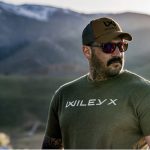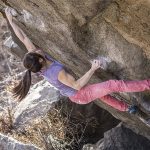The Friends of the Outdoor Industry Award is presented to a Member of Congress in recognition for their legislative leadership around outdoor recreation. This year, awards will be presented to Senator Conrad Burns (R-TN), Senator Susan Collins (R-ME), Senator Judd Gregg (R-NH) and Senator Ken Salazar (D-CO) for their efforts to ensure funding for the Land and Water Conservation Fund (LWCF). Last year, the work of these senators was critical to the survival of the state assistance program of the LWCF. Without their help, the stateside program would have been entirely eliminated.
Senator Conrad Burns became only the second Republican Senator in Montanas history, defeating incumbent John Melcher in 1988. As the Chairman of the Senate Interior Appropriations Subcommittee, Senator Burns was the key champion for stateside LWCF in 2005. Without his strong support, the program simply would not have been funded. With the White House and the House Interior Appropriations Subcommittee Chairman insistent that the program be eliminated, Senator Burns stood his ground to ensure that the program survived. Stateside LWCF was one of the last programs to be reconciled in the House-Senate Interior Appropriations conference committee. It was Senator Burns who was there at the last hour standing up for the program.
Senator Susan Collins was elected to represent the State of Maine in the United States Senate in 1996 and was re-elected to a second term in 2002. She was the 15th woman in history to be elected to the Senate in her own right. Senator Collins is the Chairman of the Homeland Security and Governmental Affairs Committee, which has jurisdiction over the Department of Homeland Security and is the Senates chief oversight committee.
Senator Collins was a key champion for stateside LWCF in 2005. When the Senate Interior Appropriations Subcommittee took a stand in support of stateside LWCF in conference, they did so with a strong letter from 40-plus Senators. That letter was organized by Senators Susan Collins (R-ME) and Ken Salazar (D-CO). It was invaluable in demonstrating strong support for stateside LWCF in the Senate.
In November 2004, Senator Judd Gregg was re-elected to a third term in the United States Senate, receiving the highest number of votes in any election in New Hampshire history. The 109th Congress provides Senator Gregg a number of key leadership and committee positions that give him an influential voice in national affairs, including serving as both the Chairman of the Senate Budget Committee, and as Chairman of the Senate Appropriations Subcommittee on Homeland Security. Senator Gregg remains a senior member of the Senate HELP Committee.
As the Chairman of the Senate Budget Committee, Senator Gregg weighed in with the Senate Interior Appropriations Subcommittee in support of stateside LWCF, and provided key information and support during the Budget Resolution and Reconciliation processes. An attempt by the Administration to rescind stateside dollars did not materialize; Senator Gregg stood ready to thwart that effort.
Senator Ken Salazar was a key champion for stateside LWCF in 2005. When the Senate Interior Appropriations Subcommittee took a stand in support of stateside LWCF in conference, they did so with a strong letter from 40-plus Senators. That letter was organized by Senators Ken Salazar (D-CO) and Susan Collins (R-ME). It was invaluable in demonstrating strong support for stateside LWCF in the Senate. In addition to this letter, Senator Salazar offered several amendments on the Senate floor to increase dollars for the program. Senator Salazar was elected to the United States Senate in November 2004 as Colorados thirty-fifth United States Senator. A fifth generation Coloradan, Ken and his family have been farmers and ranchers in the San Luis Valley since before Colorado became a state.
In his freshman year, Senator Salazar played a leading role in many bipartisan approaches to solving problems important to Americans. Ken helped spearhead the “Gang of 14” agreement between seven Republican and seven Democratic Senators, ending the Senate impasse on judicial appointments that threatened to destroy the Senates historic foundations. Senator Salazar is a member of five Senate Committees: Agriculture, Energy & Natural Resources, Veterans Affairs, Ethics, and Aging.















